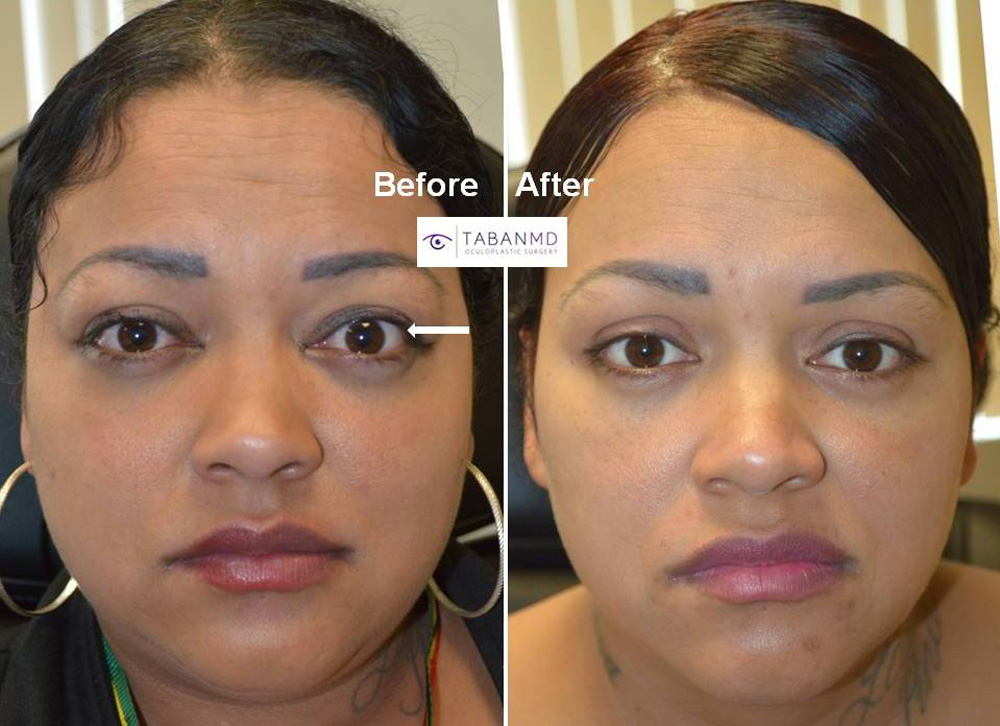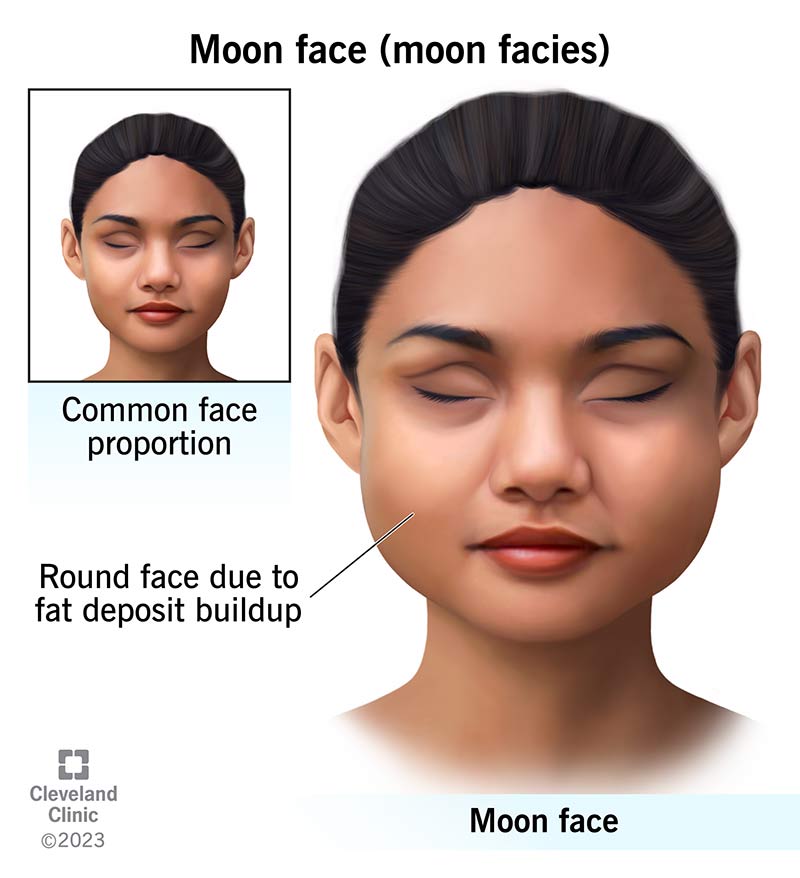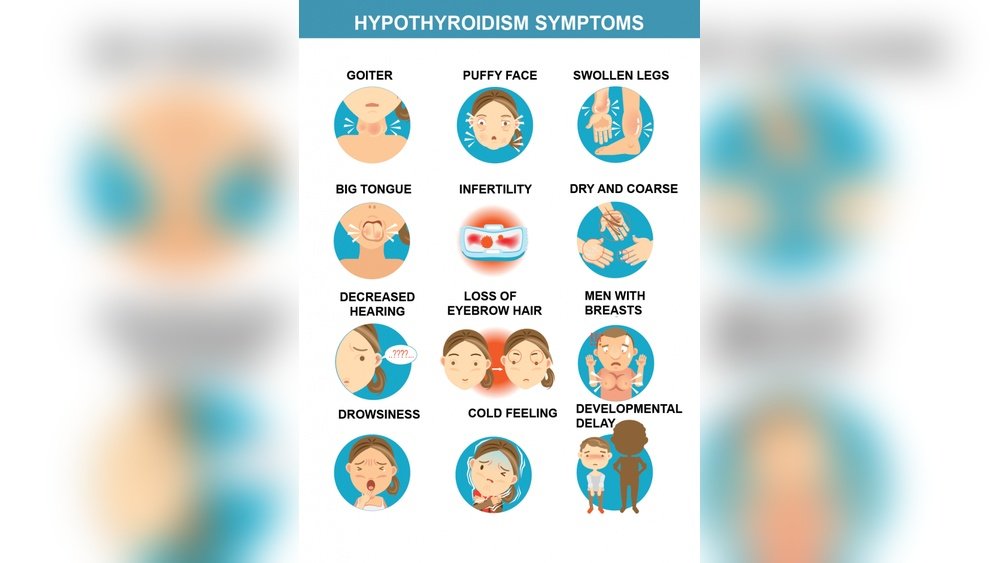Have you noticed your face looking unusually puffy or swollen lately? This puffiness might be more than just a cosmetic concern—it could be a sign that your thyroid isn’t working properly.
Thyroid disorders, especially hypothyroidism, often cause facial puffiness due to fluid buildup and changes in circulation. But how exactly does your thyroid affect your face, and what should you do if you spot these changes? You’ll discover the surprising connection between thyroid health and facial puffiness, the other symptoms you should watch for, and when it’s time to seek medical help.
Understanding these clues can make a huge difference in managing your health and getting back to feeling like yourself again. Keep reading to learn how your thyroid might be the hidden cause behind your facial swelling—and what steps you can take today.
Causes Of Facial Puffiness In Thyroid Disorders
Facial puffiness is a common sign linked to thyroid disorders. It happens due to changes in the body caused by thyroid hormone imbalance. The swelling often appears around the eyes, cheeks, and jawline. This puffiness can affect self-esteem and daily comfort. Understanding the causes helps in recognizing the symptoms early. Early detection leads to better management of thyroid-related facial swelling.
Fluid Retention In Hypothyroidism
Hypothyroidism slows down the body’s metabolism. This slowdown causes substances called glycosaminoglycans to build up in the skin. These molecules attract and hold water, leading to swelling. The extra fluid causes the face to look puffy and swollen.
Poor Circulation And Its Effects
Low thyroid hormone levels reduce blood flow in the body. Poor circulation causes fluids to collect in tissues. This fluid buildup increases facial puffiness. The skin may also look pale and dry due to reduced blood supply.
Impact Of Graves’ Disease In Hyperthyroidism
Graves’ disease is a thyroid disorder causing overactive thyroid. It leads to inflammation and swelling around the eyes. This condition can cause the eyes to bulge and the face to look puffy. The swelling is different from hypothyroidism but still causes facial puffiness.

Credit: ditki.com
Symptoms Accompanying Puffy Face
A puffy face often signals an underlying health issue. Thyroid disorders frequently cause this facial swelling. Recognizing the symptoms alongside puffiness can help identify thyroid problems early. These signs vary but usually appear gradually.
Facial puffiness with thyroid issues comes with specific symptoms. Understanding these can guide timely medical advice and treatment. Below are common symptoms that often accompany a swollen or puffy face.
Fatigue And Low Energy
Feeling tired all the time is common with thyroid disorders. The body’s metabolism slows down, causing low energy. This fatigue is more than just normal tiredness. It affects daily activities and concentration.
Dry Skin And Hair Changes
Dry, rough skin often appears with facial puffiness. Hair may become brittle or thin. Eyebrows can also thin, especially at the outer edges. These changes result from slowed metabolism and poor circulation.
Weight Gain And Swelling
Unexpected weight gain often happens alongside facial swelling. The body holds extra water due to fluid retention. This can cause puffiness in the face and other areas like hands and feet.
Cold Sensitivity
People with thyroid problems often feel cold. This happens even in warm weather. The slowed metabolism reduces heat production in the body. Cold hands and feet are common signs.
Muscle Weakness And Aches
Muscle weakness and cramps may occur with facial puffiness. The thyroid affects muscle function and energy use. Weakness can make physical tasks harder than usual.
Hoarseness And Voice Changes
Voice changes, such as hoarseness, often happen with thyroid disorders. Swelling around the throat can affect the vocal cords. This symptom may worsen if the thyroid enlarges.
Depression And Mood Changes
Thyroid problems can affect mood and mental health. Depression and low mood may develop with other symptoms. These changes can impact daily life and relationships.
Effects Of Hypothyroidism On Skin And Hair
Hypothyroidism impacts skin and hair by slowing metabolism. This change causes visible effects that often worry those affected. The skin can become dry and rough, while hair may thin and break easily. These symptoms arise because the body produces fewer thyroid hormones than needed for normal function.
Skin and hair depend on thyroid hormones for growth and repair. A lack of hormones slows these processes. This leads to dull skin and fragile hair, which may fall out more than usual. Understanding these effects helps manage symptoms better.
Changes In Skin Texture And Color
Hypothyroidism often causes the skin to feel dry and coarse. It loses its normal glow and may appear pale or yellowish. This happens because blood flow slows and fewer oils are produced. The skin may also swell slightly, adding to a puffy look.
Hair Thinning And Hair Loss
Thyroid hormone deficiency weakens hair follicles. Hair grows slower and falls out more easily. This can cause thinning hair on the scalp and loss of eyebrow hair. Hair may also become brittle and break off.
Slow Healing And Increased Sensitivity
Skin heals more slowly with hypothyroidism. Small cuts or bruises take longer to recover. The skin can feel cold and sensitive to touch. These signs result from poor circulation and low hormone levels.

Credit: tabanmd.com
Hyperthyroidism And Facial Changes
Hyperthyroidism affects more than just metabolism; it also changes facial appearance. The excess thyroid hormone speeds up body processes. This can lead to noticeable facial changes that may cause concern.
Facial puffiness is one common sign linked to hyperthyroidism. This puffiness differs from that caused by other health issues. It often comes with other distinct facial features.
What Causes Facial Changes In Hyperthyroidism?
Hyperthyroidism increases blood flow and metabolism in the face. This can cause swelling in soft tissues. The skin may look flushed or warm. Muscle weakness around the eyes can lead to a tired appearance.
Graves’ Disease And Eye Bulging
Graves’ disease is a common cause of hyperthyroidism. It can cause the eyes to bulge or look puffy. This happens due to inflammation and fluid buildup behind the eyes. The condition is called exophthalmos. It often makes the face appear swollen and tense.
Facial Puffiness Vs. Other Symptoms
Facial puffiness in hyperthyroidism is usually mild. It is often combined with a flushed face and sweating. Other symptoms include rapid heartbeat, weight loss, and nervousness. These signs help differentiate hyperthyroidism from other causes of facial swelling.
Managing Facial Changes In Hyperthyroidism
Treatment of hyperthyroidism can reduce facial puffiness. Medicines or other therapies lower thyroid hormone levels. This helps improve skin texture and reduce swelling. Early treatment prevents long-term facial changes.
When To Seek Medical Help
Facial puffiness linked to thyroid disorders can signal a deeper health issue. Recognizing when to seek medical help is crucial. Early diagnosis improves treatment success and prevents complications.
Thyroid problems like hypothyroidism often cause slow changes. Sometimes, symptoms appear subtly and worsen over time. Noticing facial puffiness alongside other signs should prompt a visit to a healthcare provider.
Signs That Require Immediate Medical Attention
Sudden, severe facial swelling needs urgent evaluation. Difficulty breathing or swallowing along with puffiness is an emergency. Rapid changes in face shape or vision problems demand prompt care.
Persistent Facial Puffiness With Other Symptoms
Facial swelling lasting more than a few weeks is a concern. Fatigue, dry skin, and weight gain together increase suspicion of thyroid issues. Muscle weakness or mood changes with puffiness also need medical review.
Importance Of Professional Diagnosis
Only blood tests confirm thyroid dysfunction. Self-diagnosis risks missing other causes of puffiness. A doctor can tailor treatment based on specific thyroid hormone levels.
Steps To Take Before The Doctor’s Visit
Keep a symptom diary noting when puffiness appears. Record any new or worsening signs related to thyroid health. Avoid self-medicating and share all concerns honestly during the appointment.

Credit: my.clevelandclinic.org
Frequently Asked Questions
Can Thyroid Issues Cause Puffy Face?
Yes, thyroid issues like hypothyroidism can cause a puffy face due to fluid retention and slowed circulation. Hyperthyroidism may also lead to facial swelling, sometimes with bulging eyes. Consult a doctor if puffiness occurs with other symptoms like fatigue, dry skin, or hair thinning.
Can Hypothyroidism Cause Tremors?
Hypothyroidism rarely causes tremors. Tremors more commonly associate with hyperthyroidism due to increased nervous system activity.
What Does Hashimoto’s Face Look Like?
Hashimoto’s face often appears puffy and swollen due to fluid retention. It may include dry skin, thinning eyebrows, and a dull complexion.
How Do You Feel When Your Thyroid Is Out Of Whack?
Thyroid imbalance causes fatigue, weight changes, dry skin, hair thinning, and facial puffiness from fluid retention. You may feel sluggish, cold-sensitive, and weak.
Can Thyroid Problems Cause Facial Puffiness?
Yes, thyroid disorders, especially hypothyroidism, often cause facial swelling due to fluid retention.
How Does Hypothyroidism Lead To A Puffy Face?
Hypothyroidism slows metabolism, causing fluid buildup and poor circulation, which leads to facial puffiness.
Conclusion
Thyroid disorders can cause noticeable facial puffiness. This swelling happens due to fluid build-up and slow metabolism. Watch for other symptoms like tiredness, dry skin, or weight changes. Early diagnosis helps manage symptoms effectively. Consult a doctor if facial puffiness appears with other signs.
Proper treatment can reduce swelling and improve your quality of life. Taking care of your thyroid health is important for overall well-being. Stay aware and seek help when needed.
 Skip to content
Skip to content 